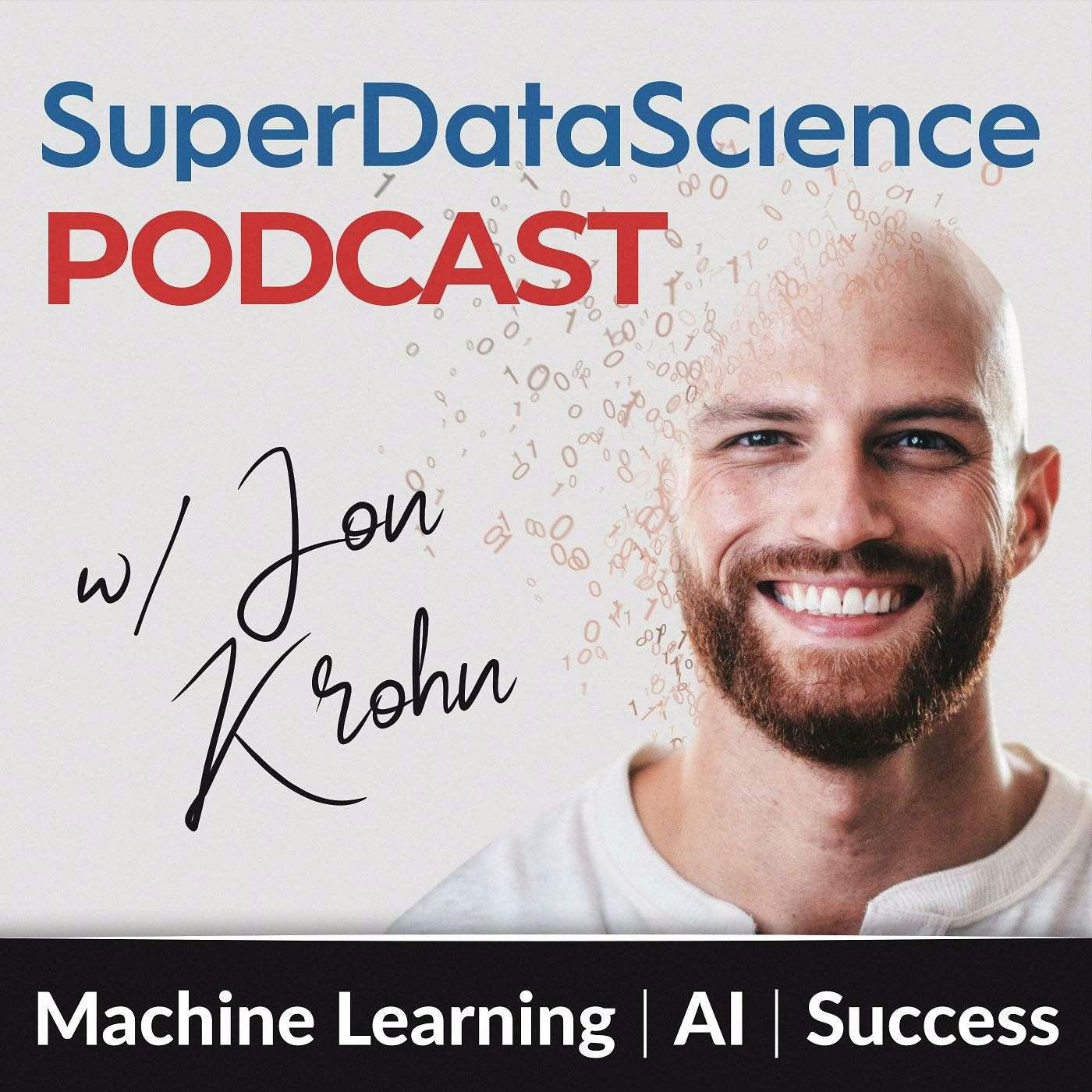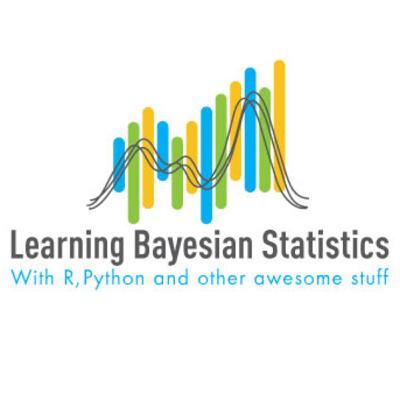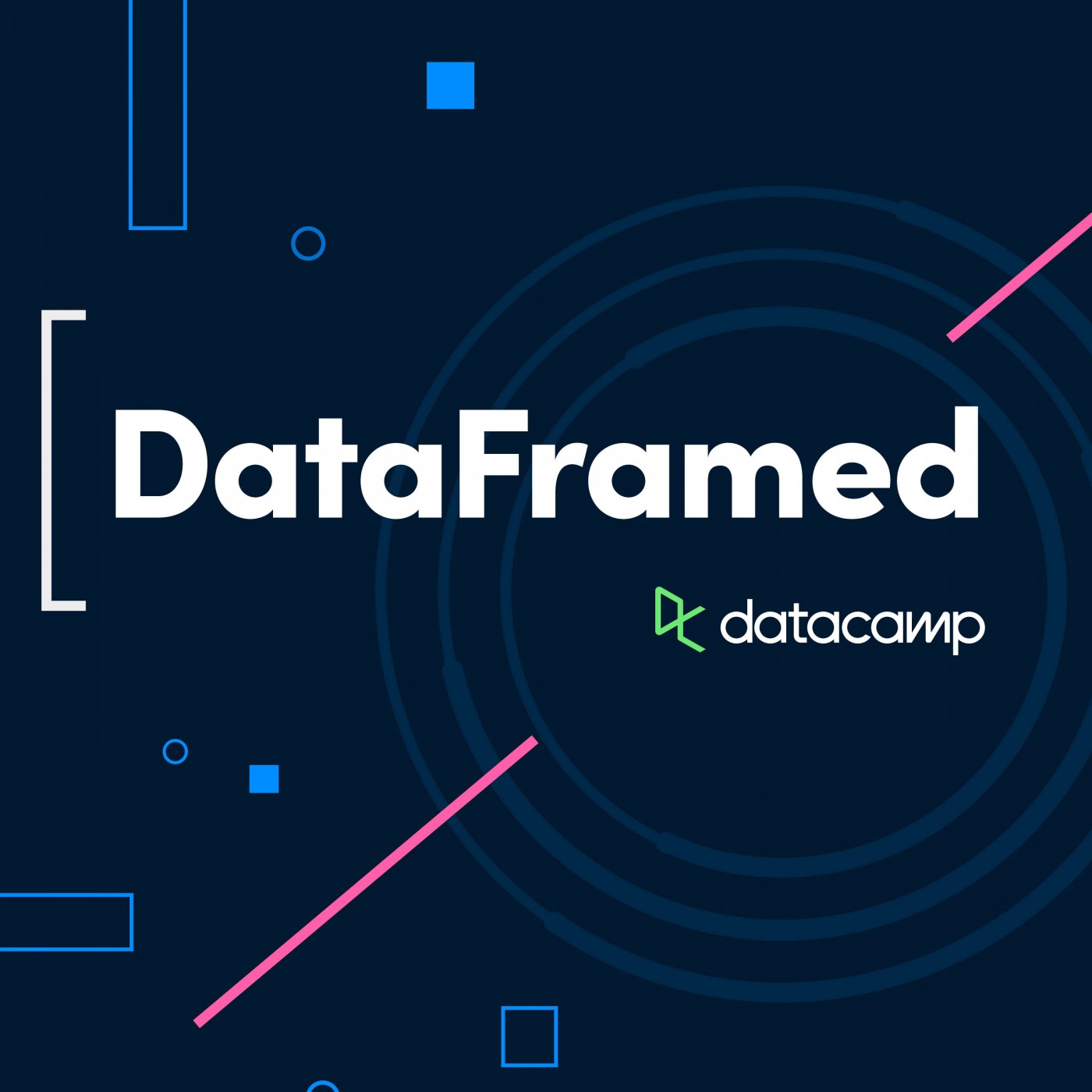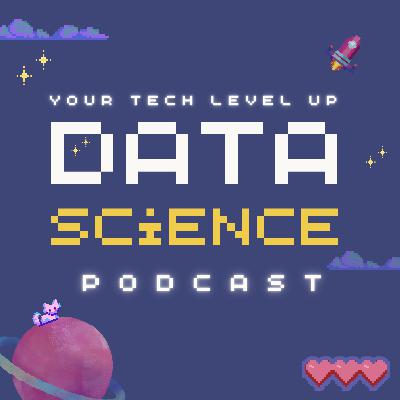Discover Data Science on Player FM
Data Science on Player FM

4301 Episodes
Reverse
With the number of jobs dramatically slowing in the last year, many question if this decline is down to companies turning to AI for completing entry-level tasks in particular. Research published earlier this month by Yale University shows no major difference in the types of roles and tasks in so-called `white-collar jobs` since late 2022, an auspicious date that coincides with the launch of ChatGPT. In this week‘s Five-Minute Friday, host Jon Krohn discusses if and when AI will undercut junior-level jobs, particularly in the US.
Additional materials: www.superdatascience.com/934
Interested in sponsoring a SuperDataScience Podcast episode? Email natalie@superdatascience.com for sponsorship information.
The other day, I asked my daughter if she wanted me to make her some eggs. She responded with a "Yes!" in text and came to sit up at the counter while I cooked for us both. We chatted a bit, and at one point she said, "Thanks for cooking, but it's not that I can't cook." I laughed a bit and responded with "this isn't a can/can't situation, it's a do/don't or will/won't one." I know my girl can cook; I made sure all my kids learned how to cook. It's that they often choose not to, hunting for leftovers, going for takeout, or skipping meals. Read the rest of Can/Can't Do/Don't
Data visualizations are everywhere, showing up in social media, in the news, and on company websites. With this onslaught, it can be hard to know what visualizations to trust. Learning how to navigate bad graphs and charts is a focus of this episode of Stats and Stories with guest Nathan Yau.
Yau is the author of several books on data visualization, including Visualize This and a number of other works. He also runs the Flowing Data blog, where he works to make the process of creating data visualizations accessible to a wide audience. He recently published a defense against dishonest charts on his blog, which serves as a guide to determining which visualizations to trust.
Flowing Data's Origin and Development 2:32
Surprising Insights and Misleading Charts 7:55
Anatomy of a Chart and Common Misleading Techniques 12:25
Strategies for Reading Data and Interactive Charts 16:31
Feedback and Tools for Visualization 23:26
Sign up for Alex's first live cohort, about Hierarchical Model buildingSoccer Factor Model DashboardToday’s clip is from episode 143 of the podcast, with Christoph Bamberg.Christoph shares his journey into Bayesian statistics and computational modeling, the challenges faced in academia, and the technical tools used in research. Alex and Christoph delve into a specific study on appetite regulation and cognitive performance, exploring the implications of framing in psychological research and the importance of careful communication in health-related contexts.Get the full discussion here.Intro to Bayes Course (first 2 lessons free)Advanced Regression Course (first 2 lessons free)Our theme music is « Good Bayesian », by Baba Brinkman (feat MC Lars and Mega Ran). Check out his awesome work!Visit our Patreon page to unlock exclusive Bayesian swag ;)TranscriptThis is an automatic transcript and may therefore contain errors. Please get in touch if you're willing to correct them.
Send us a textThis is one of my favorite episodes - it's all about the story!Part 2 of our conversation with Vinca LaFleur, Founding Partner of West Wing Writers. From the power of ideas to the art of delivery, Vinca shares what it takes to write words that resonate — and why every great message starts with meaning.00:30 Tricks and tips to a presentation04:14 Speech gotchas07:29 Knowing when you have a hit09:39 How much is delivery11:53 GOAT speech Bobby Kennedy in Indianapolis: https://www.youtube.com/watch?v=A2kWIa8wSC014:49 Gettysburg case study17:11 ChatGPT?20:26 Mental cups26:55 West Wing Writers31:51 Chief34:30 Book recommended most Made to Stick: https://www.amazon.com/Made-Stick-Ideas-SurviveOthers/dp/1400064287Want to be featured as a guest on Making Data Simple? Reach out to us at almartintalksdata@gmail.com and tell us why you should be next. The Making Data Simple Podcast is hosted by Al Martin, WW VP Technical Sales, IBM, where we explore trending technologies, business innovation, and leadership ... while keeping it simple & fun.
I fly a lot, as you might have guessed if you read my blog regularly. In 2025, I've been on 56 United planes as I write this, with about 10 left to go before the end of the year. One of the things United does is sometimes send out a quick "survey" after a flight, checking to see if everything went smoothly. I don't always fill these out, but recently I decided to give some feedback as I had a great experience. I really wanted to just complement the onboard crew, but the survey was quite a few pages (10?) and a lot of questions. I started to try and fill it out, but lost focus after a few pages. This felt like a chore, and I started to just randomly click some of the selections asking me to rate things 1-10. I wasn't really rating the items; I was trying to get done. Eventually, I bailed on the survey and didn't complete it, but that got me thinking about the data from these surveys. Read the rest of Be Wary of Data
Sheamus McGovern, CEO of Open Data Science, takes Jon Krohn and his listeners on a journey to launching his popular data science and AI conference, now in its tenth year, as well as the great shifts to the fields that he has seen on the way. For Seamus, the growth of his Open Data Science Conference has shown him that an AI engineer is just the beginning of several roles that will emerge from the industry. He asks Jon to consider the breadth of tasks demanded of today’s engineers, from data profiling and transformation to feature engineering, hyper-parameter tuning, and model deployments. Just as the AI engineer emerged from the data scientist role, Seamus expects the industry to respond to the broadening range of projects and tools with new, niche, and dynamic job roles.
This episode is brought to you by the Trainium2, the latest AI chip from AWS, by Gurobi, by Dell and by Intel.
Additional materials: www.superdatascience.com/933
Interested in sponsoring a SuperDataScience Podcast episode? Email natalie@superdatascience.com for sponsorship information.
In this episode you will learn:
(02:50) Why Seamus started ODSC
(18:27) The differences in AI engineers and data scientists
(24:20) How to keep up with AI’s rapid pace
(33:51) How people hire for AI orchestration
(46:26) How companies can get team skillsets right
Está no ar, o Data Hackers News !! Os assuntos mais quentes da semana, com as principais notícias da área de Dados, IA e Tecnologia, que você também encontra na nossa Newsletter semanal, agora no Podcast do Data Hackers !!Aperte o play e ouça agora, o Data Hackers News dessa semana!Para saber tudo sobre o que está acontecendo na área de dados, se inscreva na Newsletter semanal:https://www.datahackers.news/Conheça nossos comentaristas do Data Hackers News:Monique FemmeDemais canais do Data Hackers:SiteLinkedinInstagramTik TokYou Tube
A Conversation with Kaspar Rufibach
Why You Should Listen:
If you’ve ever wondered what adaptive designs really are, when they make sense, and how ICH E20 will influence our work as statisticians, this episode will give you a clear, practical overview.You’ll learn:
✔ Why adaptive designs often save valuable time—and what organizational barriers keep teams from using them.
✔ What types of adaptations are possible and truly useful in confirmatory settings.
✔ How combining evidence across study stages works in principle.
Episode Highlights:
01:28 – Catching up with KasparKaspar returns to the podcast to dive into the topic of adaptive clinical trials.
02:34 – Why adapt?We discuss the main motivation behind adapting a trial and when it’s worth the effort.
03:00 – Group-sequential designsA quick look back at where adaptive concepts began and why they remain relevant.
06:03 – Practical adaptationsWe touch on examples of adaptations that can make studies more flexible and efficient.
10:00 – Planning challengesKaspar shares how real-world constraints shape decisions around adaptive design.
15:06 – Why not more often?We reflect on the cultural and operational reasons these designs are still less common than expected.
25:30 – ICH E20An overview of what the new guideline covers and why statisticians should pay attention.
27:13 – Looking aheadI share upcoming opportunities to continue this discussion at industry meetings in Basel.
29:13 – Closing thoughtsA reminder about the value of good planning and purposeful adaptation in clinical trials.
Resources and Links:
ICH E20 (Draft): Adaptive Designs for Clinical Trials
ICH E9(R1): Estimands and Sensitivity Analyses in Clinical Trials
EFSPI Regulatory Workshop & ISCB Conference (Basel)
🔗 The Effective Statistician Academy – I offer free and premium resources to help you become a more effective statistician.
🔗 Medical Data Leaders Community – Join my network of statisticians and data leaders to enhance your influencing skills.
🔗 My New Book: How to Be an Effective Statistician - Volume 1 – It’s packed with insights to help statisticians, data scientists, and quantitative professionals excel as leaders, collaborators, and change-makers in healthcare and medicine.
🔗 PSI (Statistical Community in Healthcare) – Access webinars, training, and networking opportunities.
Join the Conversation:Did you find this episode helpful? Share it with your colleagues and let me know your thoughts! Connect with me on LinkedIn and be part of the discussion.
Subscribe & Stay Updated:Never miss an episode! Subscribe to The Effective Statistician on your favorite podcast platform and continue growing your influence as a statistician.
The journey from startup to billion-dollar enterprise requires more than just a great product—it demands strategic alignment between sales and marketing. How do you identify your ideal customer profile when you're just starting out? What data signals help you find the twins of your successful early adopters? With AI now automating everything from competitive analysis to content creation, the traditional boundaries between departments are blurring. But what personality traits should you look for when building teams that can scale with your growth? And how do you ensure your data strategy supports rather than hinders your AI ambitions in this rapidly evolving landscape?Denise Persson is CMO at Snowflake and has 20 years of technology marketing experience at high-growth companies. Prior to joining Snowflake, she served as CMO for Apigee, an API platform company that went public in 2015 and Google acquired in 2016. She began her career at collaboration software company Genesys, where she built and led a global marketing organization. Denise also helped lead Genesys through its expansion to become a successful IPO and acquired company. Denise holds a BA in Business Administration and Economics from Stockholm University, and holds an MBA from Georgetown University.Chris Degnan is the former CRO at Snowflake and has over 15 years of enterprise technology sales experience. Before working at Snowflake, Chris served as the AVP of the West at EMC, and prior to that as VP Western Region at Aveksa, where he helped grow the business 250% year-over-year. Before Aveksa, Chris spent eight years at EMC and managed a team responsible for 175 select accounts. Prior to EMC, Chris worked in enterprise sales at Informatica and Covalent Technologies (acquired by VMware). He holds a BA from the University of Delaware.In the episode, Richie, Denise, and Chris explore the journey to a billion-dollar ARR, the importance of customer obsession, aligning sales and marketing, leveraging data for decision-making, and the role of AI in scaling operations, and much more.Links Mentioned in the Show:SnowflakeSnowflake BUILDConnect with Denise and ChrisSnowflake is FREE on DataCamp this weekRelated Episode: Adding AI to the Data Warehouse with Sridhar Ramaswamy, CEO at SnowflakeRewatch RADAR AI New to DataCamp?Learn on the go using the DataCamp mobile appEmpower your business with world-class data and AI skills with DataCamp for business
A inteligência de dados está remodelando indústrias inteiras, e o jornalismo é um dos exemplos mais fascinantes dessa transformação!Neste episódio, contamos como a EPTV, uma das maiores afiliadas da Rede Globo, está reinventando a forma de produzir notícia com a criação de um Núcleo de Jornalismo de Dados em parceria com a Snowflake. Um projeto que combina tecnologia, inteligência artificial e análise de dados para transformar informações públicas em reportagens mais precisas, ágeis e relevantes.Exploramos como essa estrutura nasceu, os desafios de implementar uma cultura orientada a dados e o papel da Snowflake na automatização do acesso a informações, integração de fontes e uso de IA contextual para antecipar tendências e apoiar decisões editoriais.Se você quer entender como dados e IA estão moldando o futuro do jornalismo e inspirando novas formas de contar histórias, esse episódio é para você!Lembrando que você pode encontrar todos os podcasts da comunidade Data Hackers no Spotify, iTunes, Google Podcast, Castbox e muitas outras plataformas.Convidados:Marcelo Manzano - Gerente do time de Solutions Engineering na Snowflake BrasilBruno Woth - Gerente de Dados e Desenvolvimento na EPTVNossa Bancada Data Hackers:Monique Femme — Head of Community Management na Data HackersGabriel Lages — Co-founder da Data Hackers e Data & Analytics Sr. Director na Hotmart.Referências:GRUPO EP - Empresas PioneirasSnowflake
Larissa Schneider speaks to Jon Krohn in this Feature Friday about finding the right time to invest in AI solutions, and when it’s better to build them yourself. She discusses her work leading global strategy and operations at Unframe, and how they raised $50 million in venture capital since the company’s launch in March 2025.
Additional materials: www.superdatascience.com/932
Interested in sponsoring a SuperDataScience Podcast episode? Email natalie@superdatascience.com for sponsorship information.
Most of you reading this work in technology, and I assume that you've had to learn something new on the job. Technology is constantly evolving, even on our existing platforms. On top of that, we are regularly given tasks that are outside of our current skill sets. Maybe not far outside, but to meet the changing demands of our jobs, we need to learn new things. I ran across an interesting post (on a new site) from Brent Ozar. I think that guy writes as much as me, but he wrote this one: Why I Started Using Postgres (And You Might Too). It's a little provocative, but there are good posts on the site about things Brent learned in PostgreSQL. I won't go into whether learning PostgreSQL is a good idea. Read the rest of The Journey to PostgreSQL (or anything)
Fred Jordan, Co-CEO of FinalSpark, takes us inside the radical world of biological computing, where real neurons extracted from human tissue are being trained to solve problems that would require 10 megawatts in silicon. We explore the life support systems keeping these "wetware" processors alive, the ethical quandaries of computation performed by living cells, and why the messiness of biology might be exactly what AI needs next. From training cycles and reproducibility challenges to the surprising behaviors these neural networks display, Jordan paints a picture of 2030 where your devices might be powered by something closer to a brain than a chip.
Sponsors
This episode is proudly sponsored by Amethix Technologies. At the intersection of ethics and engineering, Amethix creates AI systems that don’t just function—they adapt, learn, and serve. With a focus on dual-use innovation, Amethix is shaping a future where intelligent machines extend human capability, not replace it. Discover more at https://amethix.com This episode is brought to you by Intrepid AI. From drones to satellites, Intrepid AI gives engineers and defense innovators the tools to prototype, simulate, and deploy autonomous systems with confidence. Whether it's in the sky, on the ground, or in orbit—if it's intelligent and mobile, Intrepid helps you build it. Learn more at intrepid.ai
References
Website: finalspark.com
Discord account: / discord
Newsletter: https://finalspark.com/#newsletter
Topics: Biological computing • Neural engineering • Energy-efficient AI • Wetware vs hardware • The future of computation
Dans cet épisode du Big Data Hebdo, Vincent Heuschling et Nicolas Wlodarczyk discutent des caractéristiques et des avantages de la base de données NoSQL Aerospike. Nicolas partage son parcours dans le domaine de l'IT et explique comment Aerospike se distingue par sa rapidité et sa scalabilité, et sa capacité à optimiser les infrastructures.Chapitres00:00:00 Introduction00:01:42 Présentation d'Aerospike00:21:03 Use-Cases00:27:25 Réduction de l'Infrastructure et Efficacité00:30:22 Intégration et Interopérabilité avec d'autres Systèmes00:41:53 Modèles de Consommation et Licensing00:49:12 Transactions et cohérence00:58:43 RessourcesNotes et ressourceshttps://bigdatahebdo.com/podcast/episode-223-aerospike
When American comedian and actor Betty White died, fans lamented the fact that she had just missed making it to her 100th birthday. They felt she’d been robbed of achieving a significant life moment. Some researchers think that this century could see more people making it to that moment and beyond. That’s the focus of this episode of Stats and Stories with guest Michael Pearce.
Michael Pearce is a PhD candidate in Statistics at the University of Washington, working under the supervision of Elena A. Erosheva. His primary research interests include preference learning and developing Bayesian statistical models for social science problems. In his spare time, Michael enjoys running, biking, and paddling around the Puget Sound.
Busy isn’t the same as valuable. Too many data teams fall into the trap of endless activity chasing the next tool, migration, or hype, without ever proving their impact. In this episode of Hub & Spoken, Jason Foster, CEO and Founder of Cynozure, sits down with Maaike van den Branden, former Chief Data Officer at Compare the Market and Mumsnet, to uncover what truly makes a data team successful. Drawing on two decades of experience, Maaike shares the practical ingredients for teams that deliver real value: clarity of purpose, balanced skills, open recognition, and strong culture. Together, they explore how leaders can: Build happy, high-performing teams that last Avoid over-promoting tech at the expense of people Prove business impact without getting lost in the noise If you’ve ever wondered what separates a high-performing data team from a busy one, this conversation is your answer. 🎧 Listen now to learn the real secret to data team success.
Está no ar, o Data Hackers News !! Os assuntos mais quentes da semana, com as principais notícias da área de Dados, IA e Tecnologia, que você também encontra na nossa Newsletter semanal, agora no Podcast do Data Hackers !!Aperte o play e ouça agora, o Data Hackers News dessa semana !Para saber tudo sobre o que está acontecendo na área de dados, se inscreva na Newsletter semanal:https://www.datahackers.news/Conheça nossos comentaristas do Data Hackers News:Monique FemmeMatérias/assuntos comentados:Demais canais do Data Hackers:SiteLinkedinInstagramTik TokYou Tube
Sign up for Alex's first live cohort, about Hierarchical Model building!Proudly sponsored by PyMC Labs, the Bayesian Consultancy. Book a call, or get in touch!Intro to Bayes Course (first 2 lessons free)Advanced Regression Course (first 2 lessons free)Our theme music is « Good Bayesian », by Baba Brinkman (feat MC Lars and Mega Ran). Check out his awesome work!Visit our Patreon page to unlock exclusive Bayesian swag ;)Takeaways:Bayesian mindset in psychology: Why priors, model checking, and full uncertainty reporting make findings more honest and useful.Intermittent fasting & cognition: A Bayesian meta-analysis suggests effects are context- and age-dependent – and often small but meaningful.Framing matters: The way we frame dietary advice (focus, flexibility, timing) can shape adherence and perceived cognitive benefits.From cravings to choices: Appetite, craving, stress, and mood interact to influence eating and cognitive performance throughout the day.Define before you measure: Clear definitions (and DAGs to encode assumptions) reduce ambiguity and guide better study design.DAGs for causal thinking: Directed acyclic graphs help separate hypotheses from data pipelines and make causal claims auditable.Small effects, big implications: Well-estimated “small” effects can scale to public-health relevance when decisions repeat daily.Teaching by modeling: Helping students write models (not just run them) builds statistical thinking and scientific literacy.Bridging lab and life: Balancing careful experiments with real-world measurement is key to actionable health-psychology insights.Trust through transparency: Openly communicating assumptions, uncertainty, and limitations strengthens scientific credibility.Chapters:10:35 The Struggles of Bayesian Statistics in Psychology22:30 Exploring Appetite and Cognitive Performance29:45 Research Methodology and Causal Inference36:36 Understanding Cravings and Definitions39:02 Intermittent Fasting and Cognitive Performance42:57 Practical Recommendations for Intermittent Fasting49:40 Balancing Experimental Psychology and Statistical Modeling55:00 Pressing Questions in Health Psychology01:04:50 Future Directions in ResearchThank you to my Patrons for making this episode possible!Yusuke Saito, Avi Bryant, Ero Carrera, Giuliano Cruz, James Wade, Tradd Salvo, William Benton, James Ahloy, Robin Taylor,, Chad Scherrer, Zwelithini Tunyiswa, Bertrand Wilden, James Thompson, Stephen Oates, Gian Luca Di Tanna, Jack Wells, Matthew Maldonado, Ian Costley, Ally Salim, Larry Gill, Ian Moran, Paul Oreto, Colin Caprani, Colin Carroll, Nathaniel Burbank, Michael Osthege, Rémi Louf, Clive Edelsten, Henri Wallen, Hugo Botha, Vinh Nguyen, Marcin Elantkowski, Adam C. Smith, Will Kurt, Andrew Moskowitz, Hector Munoz, Marco Gorelli, Simon Kessell, Bradley Rode, Patrick Kelley, Rick Anderson, Casper de Bruin, Philippe Labonde, Michael Hankin, Cameron Smith, Tomáš Frýda, Ryan Wesslen, Andreas Netti, Riley King, Yoshiyuki Hamajima, Sven De Maeyer, Michael DeCrescenzo, Fergal M, Mason Yahr, Naoya Kanai, Aubrey Clayton, Jeannine Sue, Omri Har Shemesh, Scott Anthony Robson, Robert Yolken, Or Duek, Pavel Dusek, Paul Cox, Andreas Kröpelin, Raphaël R, Nicolas Rode, Gabriel Stechschulte, Arkady, Kurt TeKolste, Marcus Nölke, Maggi Mackintosh, Grant Pezzolesi, Joshua Meehl, Javier Sabio, Kristian Higgins, Matt Rosinski, Bart Trudeau, Luis Fonseca, Dante Gates, Matt Niccolls, Maksim Kuznecov, Michael Thomas, Luke Gorrie, Cory Kiser, Julio, Edvin Saveljev, Frederick Ayala, Jeffrey Powell, Gal Kampel, Adan Romero, Will Geary, Blake Walters, Jonathan Morgan, Francesco Madrisotti, Ivy Huang, Gary Clarke, Robert Flannery, Rasmus Hindström, Stefan, Corey Abshire, Mike Loncaric, David McCormick, Ronald Legere, Sergio Dolia, Michael Cao, Yiğit Aşık, Suyog Chandramouli and Adam Tilmar Jakobsen.Links from the show:Sign up for Alex's first live cohort, about Hierarchical Model building: https://athlyticz.com/cohorts/alex-andorra/hierarchicalChristoph’s website: https://christophbg.github.io/Christoph on LinkedIn: https://www.linkedin.com/in/christoph-bamberg-2249a9a9/The impact of dietary claims on behaviour – Expectations qualify how actual satiety affects cognitive performance: https://www.sciencedirect.com/science/article/pii/S0195666324006275Bayesian meta analysis on the effects of intermittent fasting on cognitive performance: https://doi.org/10.31234/osf.io/tgwep_v1randomised controlled trial on intermittent fasting, cognitive performance and mood: https://doi.org/10.1177/13591053251351204LBS #35 The Past, Present & Future of BRMS, with Paul Bürkner: https://learnbayesstats.com/episode/35-past-present-future-brms-paul-burknerLBS #112 Advanced Bayesian Regression, with Tomi Capretto: https://learnbayesstats.com/episode/112-advanced-bayesian-regression-tomi-caprettoLBS #89 Unlocking the Science of Exercise, Nutrition & Weight Management, with Eric Trexler: https://learnbayesstats.com/episode/89-unlocking-science-exercise-nutrition-weight-management-eric-trexlerLBS #137 Causal AI & Generative Models, with Robert Ness: https://learnbayesstats.com/episode/137-causal-ai-generative-models-robert-nessDecentralised Construct Taxonomy: https://psycore.one/ and an article about it: https://doi.org/10.15626/MP.2022.3638TranscriptThis is an automatic transcript and may therefore contain errors. Please get in touch if you're willing to correct them.














